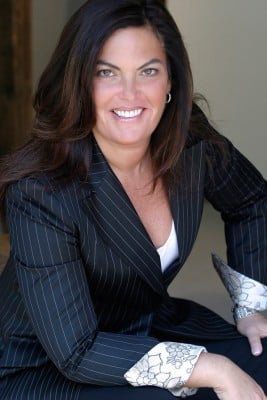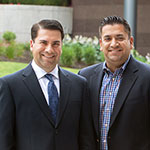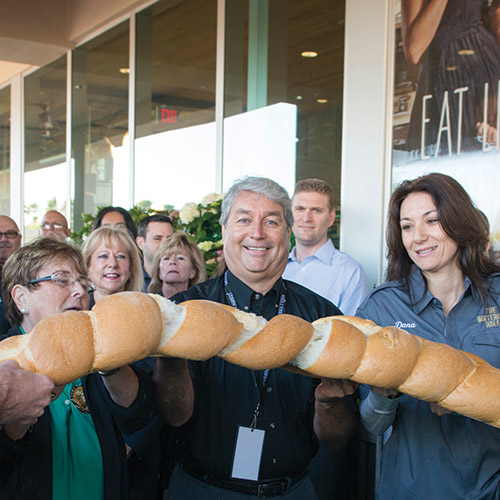
Animated, outspoken, and full of life, Liz Castells cites the “survival instinct of an immigrant” as the reason she was driven to form her award-winning Hispanic marketing agency Castells & Asociados in 1998. But Castells isn’t just surviving; she’s thriving. Not only does her agency boast major clients like McDonald’s and Toyota, but Castells was recently brought onboard as chief strategy officer to Los Angeles-based agency Davis Elen Advertising, one of the largest privately held, independent agencies in the country, with $200 million in annual sales. This new role enables Castells to get back to her core love of strategic planning, while also ensuring Hispanics are factored into all marketing efforts. Here, the president and CEO—and newly appointed CSO—talks to HE about her leadership style and capitalizing on the quickly changing US demographics.
Tell me about how you initially became interesting in marketing. What about it appealed to you?
My original plan was actually to be an investment banker. I’m a numbers and analytics person and worked in the field after college, but the last semester of getting my Stanford MBA, I took a marketing class just for fun and was blown away. Until that point, I didn’t understand the power of marketing; you’re touching people emotionally and rationally. I switched my path and have now been in marketing for 30 years. My peers made fortunes early on, entering Wall Street, Silicon Valley, and management consulting after Stanford, but I still love my career after all these years. I believe an unbridled passion for what you do is the key to success.
Was it always your goal to focus on Hispanic marketing, or did the focus evolve throughout your career?
Yes and no. It definitely wasn’t calculated. Being Hispanic, I knew I’d eventually do something related to my culture, but I wanted to get my initial training and experience at mainstream firms. Now I’ve come full circle with my dual roles as president and CEO of Castells & Asociados and chief strategic officer at Davis Elen (DE) Advertising. I see this as having the best of both worlds. I can now do things I wasn’t able to previously, and I’m not giving up what I love with my own agency. I’m gaining more experience in what interests me.
Was leadership something that came easily to you?
It came easy, and it was inevitable. I have always had an innately independent spirit. Even when playing with Barbie dolls, I always wanted to role-play as President Barbie. I like to say I have the survival spirit of a Cuban exile and energy weaned on Cuban coffee.
How would you describe your leadership style?
My style is summed up in the quote printed on my business cards: “I set the example with drive, truth, grit, art, science, and heart. I am fearless so we can fly. Yo soy la presidenta.” I’m up front and I firmly believe in the power of taking what you’ve got and making it work. I’m also loud, tenacious, fearless, and fair. Another fun fact: I tend to spit when I’m excited. Ask anyone.
How does being a Latina give you an advantage over your competitors?
When I started over 30 years ago, high-ranking businesswomen were not as common as today, so getting ahead was a challenge, especially being a Latina. Yes, there was the “good old boy network” challenge, ethnic bigotry, testosterone-fueled comments, and misguided notions, but I purposely made it a point not to belabor the women or ethnic hurdle. Why? Because I think if you acknowledge it too much, it becomes your lens and then you become a victim to it. It’s just not my way. I’m an optimist. My attitude is: Work around it, take the high road, find common ground. Move on. I simply worked very hard, focused on practical solutions, and got smarter by digging deep, asking the right questions, and having the right answers.
Despite the rapidly changing demographics of the country, a bulk of companies are still failing at marketing to Hispanics. To what do you attribute this oversight?
More than half of Fortune 500 companies don’t invest in Hispanic marketing at all, and out of those who do, only about 15 percent are doing it right. Part of it is not wanting to change what has worked in the past; they got comfortable. It’s also top-level ignorance and, usually, misconceptions about how all Hispanics assimilate or want to acculturate. They also don’t understand how biculturalism and dual language impacts even young Hispanics and how they consume, make decisions, and what they respond to.
What are the challenges of working in the Hispanic marketing space?
My life revolves around educating top executives about the Hispanic opportunity, the value of dual-language media and multicultural targeting, and how to do effective cross-cultural—or total market—marketing. It feels like we’re caught in an endless loop of a movie called “Mad Men Meets Groundhog Day.”
What is the most important thing to keep in mind when marketing to Hispanics?
It’s about culture. Latinos are very different; Cubans are different than Dominicans are different than Mexicans, but in terms of marketing, it should be more about emotion and family. All of us might eat different food or dance to different music or use specific idioms, but our core cultural commonalities—like how we value family or define success—far outweigh the differences. The key is to identify Hispanic commonalities and differences to general consumers and assess when and how it impacts the business, strategy, platform, or messaging. It’s basic marketing.

